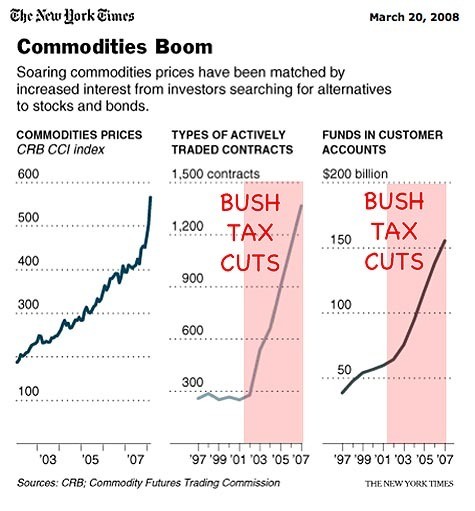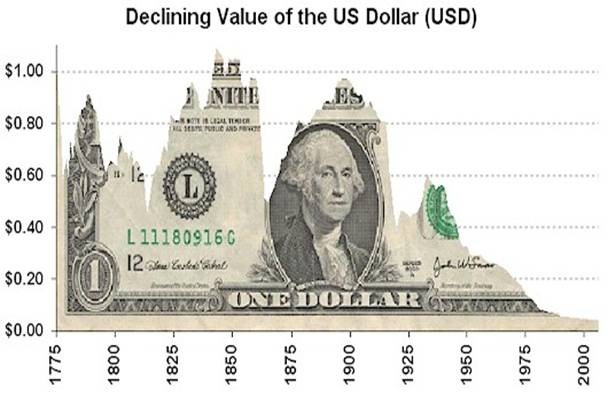Spitzer Probe Helps Cut Equity Mutual Fund Fees by 6% Since `03
Post on: 3 Июнь, 2015 No Comment

By Matthew Keenan and Danielle Kost — September 6, 2005 00:14 EDT
Sept. 6 (Bloomberg) — Americans who own U.S. stock mutual funds are paying about 6 percent less in annual management fees than they did before New York Attorney General Eliot Spitzer began his assault on industrywide trading abuses.
Today, holders of actively run U.S. stock funds overseen by the 100 biggest fund companies pay an average $9.80 for every $1,000 invested, down from $10.40 two years ago, according to data compiled by Chicago-based Morningstar Inc.
The reduction, which amounts to about $1.5 billion of savings, followed Spitzers 2003 probe and an investor migration to funds managed by firms including Los Angeles-based Capital Group Cos. American Funds and Vanguard Group of Valley Forge, Pennsylvania.
«The whole world is listening thanks in very large part to Eliot Spitzer, who deserves some sort of medal of honor from the mutual fund investor, said John Bogle, 76, Vanguards founder and a longtime critic of the fees that companies charge.
Spitzer shocked the $8.5 trillion industry on Sept. 3, 2003, when he accused four companies, including Bank of America Corp. and Janus Capital Group Inc. of permitting short-term trading by hedge fund Canary Capital Partners LLC that hurt long-term investors.
His subsequent investigations, and those by the U.S. Securities and Exchange Commission and other regulators, turned up repeated instances of rapid buying and selling of fund shares, often with the approval of fund executives. The probes also uncovered illegal late trades, in which investor orders were submitted and processed after the 4 p.m. market close to take advantage of market-moving events.
`Out of Control
U.S. regulators have reached civil settlements in the past two years with Secaucus, New Jersey-based Canary Capital, more than two dozen mutual fund and brokerage companies, and over 30 former executives. Total penalties exceed $3.4 billion.
Spitzer used the scandal as a platform for consumer protection and said fees were «grossly out of control, almost doubling those paid by pension funds. He pledged that all of his settlements with fund firms would include management price cuts and eventually won about $925 million in concessions.
«It was great that he went after fees, said Mercer Bullard, a University of Mississippi law professor in Oxford and head of the nonprofit shareholder advocacy group Fund Democracy. «I have no doubt that at the margins those settlements placed downward pressure on fees.
Morningstar Study
The Morningstar study focused on actively managed, diversified U.S. stock funds, a category that excludes index, sector and asset-allocation funds. It compared total fees paid by investors in those funds in 2003 with costs averaged over the past year. The fees include investment management, marketing, administrative and other expenses.
The study looked at average costs, based on the rates set by companies, as well as so-called asset-weighted costs, which takes into account which funds consumers actually invested in.
Americans had about $2.4 trillion invested in diversified U.S. stock funds managed by the 100 largest companies on July 31, Morningstar said. Had investors paid the same rates as in 2003, their annual fees for these funds would have been $25.4 billion. Instead, their costs were about $23.9 billion, based on data from Morningstars study.
«Investors may not focus first and foremost on cost, but they recognize the impact of cost more, said Don Phillips, 43, a managing director at Morningstar. «Its a huge amount when you think about the collective savings.
TIAA-CREF to Calamos
New Yorks TIAA-CREF had the industrys cheapest rates, according to Morningstar, charging total fees averaging 0.33 percent, or $3.30 per $1,000 invested. Dimensional Fund Advisors, based in Los Angeles, had the second-lowest fees at 0.34 percent, or $3.40 per $1,000 invested. Vanguards average rates were 0.37 percent, or $3.70; American Funds were 1.14 percent, or $11.40.
Calamos Asset Management Inc. of Naperville, Illinois, had the costliest rates in the Morningstar study, at 2.01 percent, or $20.10 per $1,000 invested. Gamco Investors Inc. a Rye, New York-based company formerly known as Gabelli Asset Management Co. had the second-highest rates, at 1.99 percent, or $19.90 per $1,000 invested.
Alliance Capital Management Holding LP, the first company to settle with Spitzer, agreed in December 2003 to cut the management portion of its charges by 20 percent, or $350 million, over five years. New York-based Alliance also paid $250 million in SEC penalties.
The five SEC commissioners issued a statement at the time criticizing Spitzer, saying there is «no legitimate basis for a regulator to act as a «rate setter. Other critics said the market should dictate prices, with investors deciding on factors including reputation and performance as well as price.
SEC vs. Spitzer
While their philosophical disagreements persisted, Spitzer and the SEC cooperated on investigations and the New York attorney general continued to secure fee cuts.
Bank of Americas $675 million in penalties in March 2004 included $160 million in fee cuts. Boston-based MFS Investment Management and Denver-based Janus agreed to $125 million in cuts; Houstons AIM Investment Management, $75 million; Bank One Corp. since merged with JPMorgan Chase & Co. $40 million; Strong Capital Management, now part of Wells Fargo & Co. $35 million; Pilgrim Baxter & Associates, now Liberty Ridge Capital, $10 million; and San Francisco-based RS Investments, $5 million.
Spitzer and the SEC are negotiating with Pittsburgh-based Federated Investors Inc. which has set aside $64.5 million in settlement-related costs.
After Spitzers initial announcement, the SEC entered its most active period of fund regulation since 1940. The agency voted to require more information disclosures and ruled that three-quarters of a funds directors be free of company ties. Under former Chairman William Donaldson, the SECs five commissioners also proposed a so-called hard 4 p.m. close to limit market timing and prevent after-hours trading.
Fund Boards
Harvey Goldschmid, 65, a Columbia University law professor who served on the SEC from 2002 until July, said Spitzers inquiry and «jawboning were catalysts for lower costs.
The most effective government action was the «SECs emphasis on fund disclosure and on the need for independent fund directors to negotiate hard on fund fees with fund advisers, Goldschmid said.
Fund boards are «more sensitive to a number of issues because of the investigations, fees being among them, said Edward Bernard, 49, president of T. Rowe Price Group Inc.s investment services unit. John Freeman, a University of South Carolina securities law professor, said the probes, combined with investor lawsuits charging that companies levy excessive fees, have compelled fund trustees to take action.
«Nobody these days wants to be the high-cost provider, said Freeman, who co-wrote a 2003 study that influenced Spitzers views on fees.
Investor Inflows
Bogle characterized the change in fees as a «consumer-led price reduction, as fund investors shifted away from higher-cost providers, some of which were implicated in probes of trading abuses or suffered from poor performance.
About one-quarter to one-third of the drop in shareholders costs in the past year can be traced to buying patterns, said Sean Collins, 46, a senior economist at the Washington-based Investment Company Institute. The industry trade group is compiling its own fee study thats scheduled for release later this month.

American Funds, Vanguard and T. Rowe Price benefited from the shift. American Funds took in $91.9 billion, or 55 percent of the industrys net new investments in equity fund between September 2003 and June, according to data compiled by Financial Research Corp. in Boston. Vanguard had $22.1 billion of inflows, or 13 percent of the total, and Baltimore-based T. Rowe Price had $19.3 billion, or 12 percent.
`Costs Matter
American Funds are sold exclusively through financial advisers, while shares of most Vanguard and T. Rowe Price funds are bought directly by the investors. The commissions paid by buyers of American Funds and other broker-sold investments arent included in the Morningstar survey.
«Consumers do understand that costs matter, said Michael Miller, 53, managing director for planning and development at Vanguard, the industrys second-biggest mutual fund company after Boston-based Fidelity Investments.
While the money flowed in, American Funds and Vanguard cut their rates. Americans board made a 10 percent reduction in April after trimming charges by 5 percent in September 2004, forgoing about $200 million in annual revenue.
Vanguard this year made more investors eligible for its Admiral shares, which require higher minimum investments and charge lower rates than ordinary, investor-class shares. The move cost Vanguard an estimated $90 million a year. Overall, Vanguards fees are set 12 percent lower than in 2003.
Breakpoints
Stock market performance also played a role in lowering investment costs. The Standard & Poors 500 Index gained 19 percent in the past two years and the Nasdaq Composite Index rose 16 percent.
The advance, following a three-year bear market, encouraged investors to put new money into stocks, Vanguards Miller said.
The market resurgence, which roughly coincided with the start of Spitzers investigation, also boosted assets at the fastest-growing funds above so-called breakpoints. At those levels, set by fund boards, management fee rates are automatically reduced. Breakpoints are intended to keep shareholders costs in check as funds realize economies of scale.
The breakpoint phenomenon also worked in the opposite direction, as discounts for shareholders of asset-losing funds evaporated. Customers of Putnam Investments, a unit of Marsh & McLennan Cos. are paying more in fees, according to the Morningstar study.
Putnam Outflows
Putnam was implicated in the scandal in October 2003, when several portfolio managers and participants in a union retirement plan were accused of market timing the Boston-based companys funds.
Shareholders have since removed $34.8 billion from Putnams U.S. stock funds, according to Financial Research. Remaining investors are paying $12.22 per $1,000 invested in diversified U.S. stock funds, up from $11.70 two years ago, the Morningstar data show.
«Our assets are down, so fees are almost status quo, said Gordon Forrester, Putnams director of marketing, in an interview.
To contact the reporter on this story: Matthew Keenan in Boston at mkeenan6@bloomberg.net ; Danielle Kost in Boston at dkost1@bloomberg.net.
To contact the editor responsible for this story: Larry Edelman in Boston at ledelman3@bloomberg.net.














